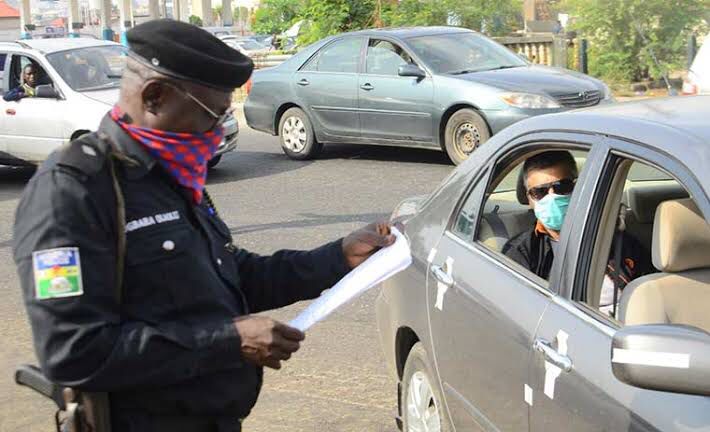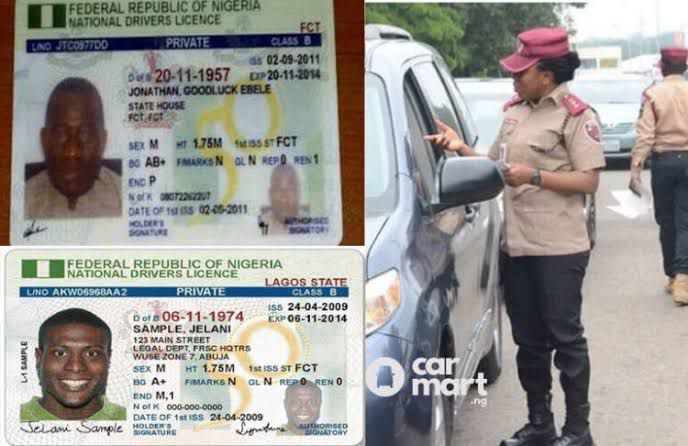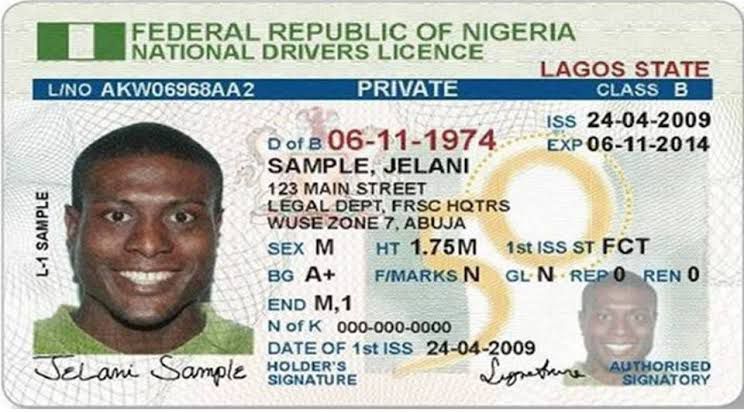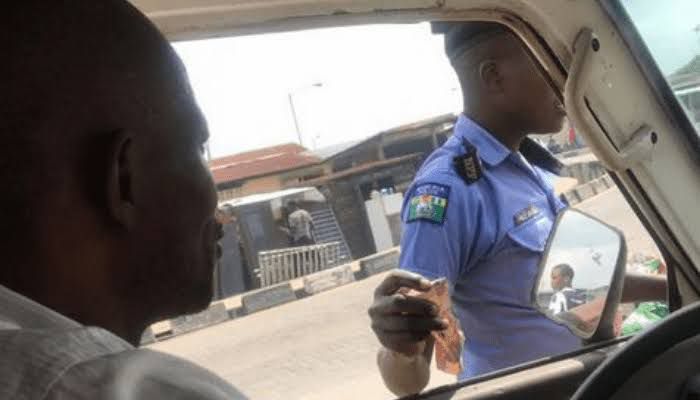/ Metro
Views: 1760
VEHICLE PARTICULARS AND EXPIRATION CHECK: WHAT ARE THE ROLES OF NPF, VIO AND FRSC

The case of the Police harassment and extortion from road users as a result of expired vehicle licence is alarming as many car owners have to always, part with huge sums of money to avoid delay.
This is gradually becoming a norm and many Nigerians who ply the roads especially highways, are ignorant of the fact that, whenever one's vehicle licence expires, one is expected to go for a renewal and not give cash(money) to the Police or Vehicle Inspection Officers(VIO) which has become the norm among motorists and tricyclists in Delta State especially in Patani, Warri, Ughelli, Eku to mention but a few.
In Nigeria, vehicle documentation is a critical aspect of road safety and legal compliance, involving various agencies with distinct roles. While this multi-agency approach aims to enhance road safety and order, it also requires clear co-ordination and respect for motorists' rights to function effectively.
The license (document) is issued by the Federal Road Safety Corps (FRSC), as it establishes the link between the driver and the vehicle and It must be kept in the vehicle at all times. Then, of course, the proof of ownership is a document that proves that the driver owns the vehicle and this can be obtained from the Vehicle Inspection Office (VIO). 
An Officer of the FRSC, who preferred anonymity said, to legally drive, one must possess a valid driver's license, vehicle registration, and other required documents. She added that it's also crucial to ensure one's vehicle is in good condition and monitor any expiration dates on one's documents.
She further explained that when stopped by the Police, their role is to ensure road safety and compliance with regulations. They may inspect your license and vehicle papers. If your documents have expired, authorities have the right to impound your vehicle until the issues are resolved. 
She noted that on the sidelines of renewal of Licenses and Documents
when expired,you must visit the appropriate office to renew them promptly and thereafter a temporary License will be issued,valid for two months.
The permanent license (plastic card) should be available within this time, although delays can occur due to high demand or system issues.
She mentioned that payments for renewal fees should typically be made at designated banks or offices and ensure to Keep proof of payment to show during inspections.
The fines for expired Documents; Driver's License is ₦10,000 while Vehicle Papers Fine is ₦5,000
She emphasized that these fines must be paid to authorized agencies, and renewals should occur in official offices, not on the roadside.
To avoid deep fakes,
Licenses must be issued from authorized centres to ensure authenticity. Fake licenses are detectable using verification systems, and only genuine licenses are recognized as valid.
However, the process of renewal is faced with system challenges as issuance is due to logistical challenges, such as centralized printing in Abuja. Applicants are advised to follow up regularly with licensing offices to resolve any issues.
When the 'A' Divisional Police Officer at NPA was contacted, he refused to comment on the matter but referred the press crew to Police Public Relations Officer of the Delta State Police Command, Asabà SP, Bright Edafe.
At Ekpan Police Station, a Police Officer who spoke on the condition of anonymity said,the Nigerian Police is not expected to extort motorists as a result of their expired vehicle particulars. According to the source, the Police is a friend of the citizens and ought not to bother but guide( direct) motorists on the right way to go when the papers are expired or has one challenge or the other.
He stressed that the Police have the right to check vehicle particulars as people complain of their stolen cars in the Police Station and If there is a case of stolen vehicle for instance, the details of that car will be sent to all the Police Officers at different check- points to enable them track down the supposed stolen car as vehicles pass that route. 
According to the source, Nigerian Police should warn motorists and direct them because the act of extorting money from them is totally unacceptable. "The main job of the Police on the highway is to check vehicle papers to see the rightful owners of the vehicles on the road, not stolen one. The checking of these papers is to ensure that the vehicles are not stolen " the source said.
When the press crew contacted Vehicle Inspection Officers (VIOs), the Officer- in- charge in the office refused to comment on the matter as he denied to be the person in charge and efforts to make him show the crew the person to comment failed as he said, he was not aware of when the officer -in-charge will be available.
In separate interviews, many of the motorists aired their views over their encounter with Police and other security agencies over vehicle licence. One of such is a motorist who identified himself as A. Ibrahim. He recounted his experience with men of the NPF. He informed PebNews crew about his trip from Benin to Warri. According to him, he met some Police men who requested for his particulars which he presented.
After their thorough check and confirmed that everything was complete, because, they found a certain amount of money in his car, they asked him to pay the sum of one million naira. According to him, he stood his ground as he did not see any reason to part with such huge sum of money. He however, was compelled to part with N120,000 after much heated argument.
Another responded who identified himself as Agbeh Collins whose car is a year old also lamented the ill treatment he received from the Police as he refused to give money after they had checked his vehicle documents and everything is in order.
As required by the law, motorists in Nigeria have the right to request for proper identification of the officers who intends to embark on checks on the motorists as regards his vehicle and documents before doing the checks.
The motorists should also be aware of the specific documents required and ensure they are up to date. In case of any disputes or harassment, motorists can report to higher authorities or seek legal redress. Understanding these dynamics helps both authorities and motorists navigate the complexities of road use in Nigeria.